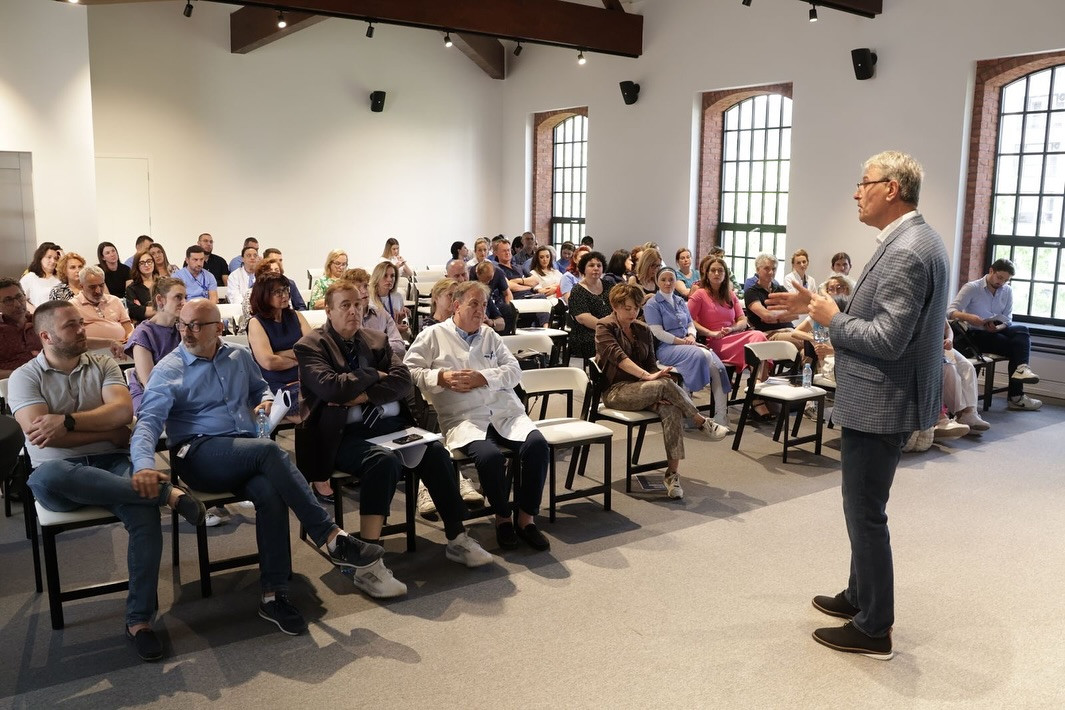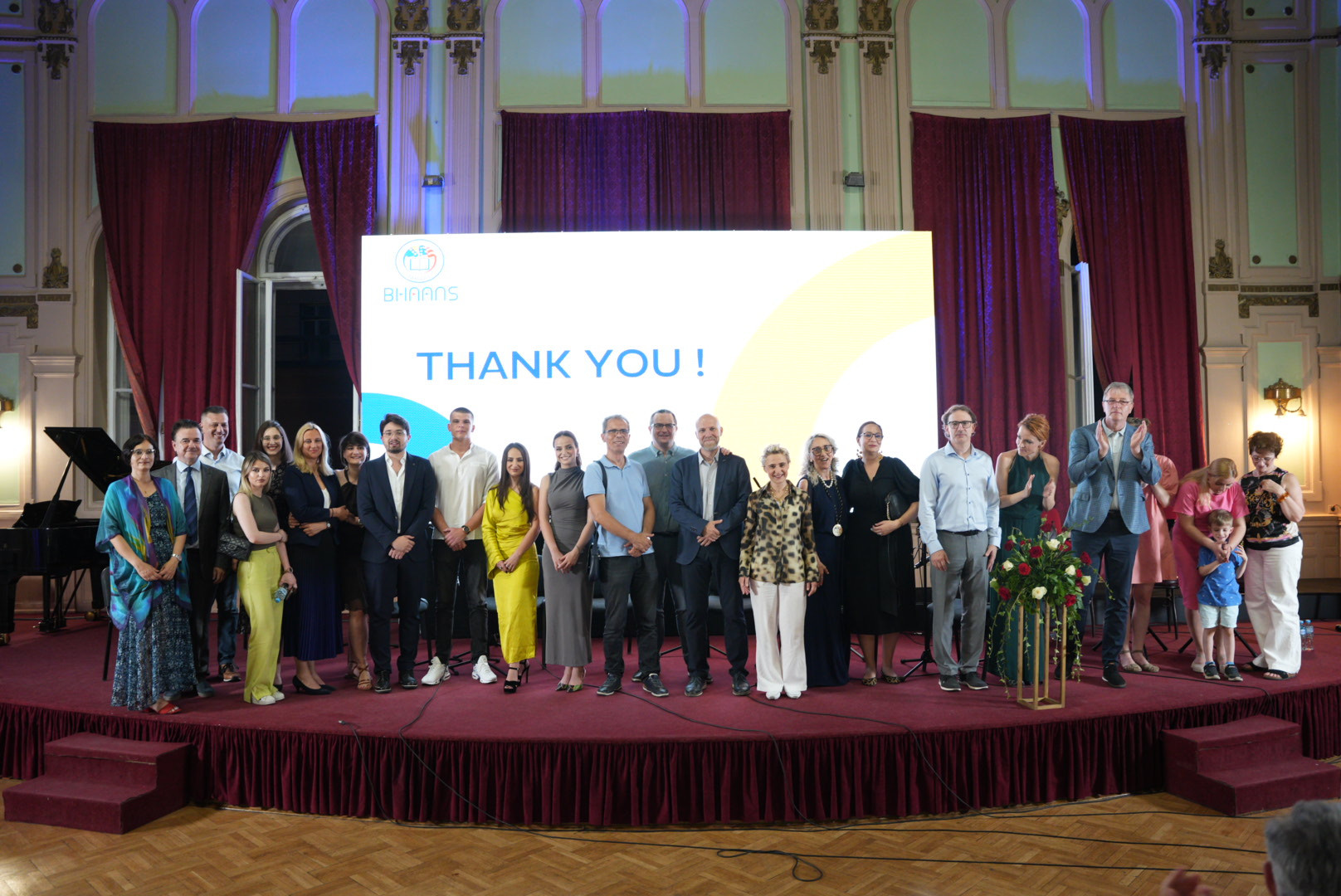
I
Adnan Begović, a specialist in intensive care and pulmonary diseases, professor of medicine at the University of California San Diego (UCSD), and a visiting professor at the Faculty of Medicine in Sarajevo, is the new president of the Bosnian-Herzegovinian American Academy of Arts and Sciences (BHAAAS).
This Academy brings together scientists in natural, technical, and humanistic sciences who love Bosnia and Herzegovina, experts from the most prestigious American universities, as well as prominent writers and artists. The ultimate goal of BHAAAS is to collaboratively work on improving the quality of life in Bosnia and Herzegovina and connecting the diaspora with the homeland through cooperation and dialogue.
As an active member of the Academy, Dr. Begović has participated in numerous initiatives that promote scientific research and contribute to linking academic communities between the United States and Bosnia and Herzegovina. His contributions include organizing and leading medical symposia, participating in the realization of a global cooperation project in the Balkans during the COVID-19 pandemic, leading the BHAAAS Medical Division, and mentoring young researchers and students.
In his new role, Dr. Begović will focus on strengthening and mobilizing the academic character of the organization, further collaboration with institutions in Bosnia and Herzegovina, and working on increasing the visibility and impact of the Academy.
We spoke with Dr. Begović about the plans and activities of BHAAAS, the largest and most significant internationally recognized organization of the academic diaspora of Bosnia and Herzegovina.
Dr. Begović, congratulations on your appointment as president of the Bosnian-Herzegovinian American Academy of Arts and Sciences (BHAAAS). What are your initial impressions?
Thank you for the congratulations. First and foremost, I would like to thank all the members of BHAAAS for their trust. This is a great honor but also a significant responsibility. Since its founding, BHAAAS has remained committed to its original idea, clearly defined mission, and vision. I am grateful to everyone who has selflessly invested their time and energy in building this institution. A lot of volunteer work, sacrifice, and effort has been invested to bring the Academy to its current level. This must be respected, and my obligation is to continue working on further developing the Academy while honoring the original vision and all those who have contributed over the years.
What are your plans as the head of the Academy, and how do you see its role? What will be your guiding idea, so to speak?
My motivation to engage in the work of the Bosnian-Herzegovinian American Academy of Arts and Sciences (BHAAAS) stems from a deep desire to contribute to the development of my homeland, Bosnia and Herzegovina, within my knowledge and expertise. Most of my professional life has been dedicated to promoting educational opportunities for others—the same opportunities that allowed me to knock on doors and open new possibilities in my professional career.
I am here because I deeply believe in the power of education and the noble ideas that BHAAAS promotes. Together, we can create conditions to make Bosnia and Herzegovina a better place for its citizens. The diaspora, with its knowledge and capacities, is a significant resource for enhancing and promoting knowledge and experience, which is vital for our future. Through my engagement in BHAAAS, I want to support young people and further promote knowledge and science as universal values.
We live in turbulent times, in an era of deep philosophical, intellectual, and social divisions, as well as global uncertainty and crises. We may not always agree, but we must engage in dialogue with mutual respect, integrity, and humanity. At a time when the credibility and reliability of information are increasingly questioned, it is crucial that we remain dedicated to the pursuit of truth—both in the sciences and the humanities.

How can we create conditions for knowledge transfers from our people abroad to Bosnia and Herzegovina?
The diaspora, with its capacities, can and must help. What BHAAAS does is just a small part of the possibilities that our diaspora can offer. For us, it is extremely important to continue building the idea of the significance of knowledge and education together.
There is a great need and potential to strengthen connections between universities, research institutions, and governmental agencies to create preconditions and programs that facilitate the engagement of experts in Bosnia and Herzegovina’s development. We have already been in this process for 15 years, which is how long the organization of BHAAAS Days has lasted.
BHAAAS is striving to take an additional step forward and be even more concrete. We particularly highlight our collaboration with institutions such as the Clinical Center of the University of Sarajevo (KCUS), the University of Sarajevo, the Faculties of Medicine in Sarajevo, Zenica, and Tuzla, the Federal Health Institute, ASA Institute, SSST, and the Mozaik Foundation. We are open to cooperation with all educational and scientific institutions and gladly accept invitations and proposals for new joint projects.
What role does BHAAAS play in developing science and art, knowledge transfer, and connecting people? Can intellectuals from America and the world take a more active role in processes in Bosnia and Herzegovina?
Interest in mutual cooperation is increasingly visible, and there is a positive trend. Initiatives must come from both sides. The Bosnian-Herzegovinian American Academy of Arts and Sciences (BHAAAS) seeks to play a role in developing science and art through collaboration and dialogue between Bosnia and Herzegovina and the American and international academic communities.



How do the BHAAAS web platforms “Znanjem do zdravlja” and “Web Medical Archive” contribute to spreading knowledge among medical professionals and the general audience?
Through platforms like “Znanjem do zdravlja,” we aim to communicate with the wider public, providing them access to relevant information and educational materials. This platform contains a wealth of medical information intended primarily for the general public but also for medical professionals. It provides access to peer-reviewed articles, the latest research, and educational resources with the mission of improving citizens’ health through timely and comprehensive information and education. The goal of the “Znanjem do zdravlja” team is to empower citizens to take an active role in preventing, recognizing, and treating diseases.
The “Web Medical Archive” functions as a digital library that stores and archives important medical research and publications, keeping them accessible to the broader medical community. These platforms support the concept of open learning, allowing anyone interested to access knowledge without geographical limitations.